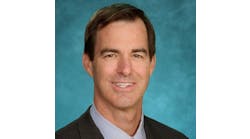Three practice transformation networks have announced the results of a four-year effort as part of the largest quality improvement effort ever underway in California. Among other results, the effort brought $345 million in cost avoidance or $6 saved for every $1 invested.
The Pacific Business Group on Health, L.A. Care Health Plan, and the Southwest Pediatric Practice Transformation Network (a partnership of Children's Hospital of Orange County and Rady Children's Hospital) served as three practice transformation networks. With more than $52 million in grants from the Centers for Medicare and Medicaid Services (CMS) under its Transforming Clinic Practice Initiative, they worked with 9,800 California physicians serving 5.9 million patients over four years. The overall goals of the CMS-supported effort were to improve quality of patient care and spend healthcare dollars more wisely.
This is a collaborative peer-based learning initiative that offers dedicated coaching and technical support to achieve its goals. The results of this initiative, conducted over four years, show:
• $345 million in cost avoidance, $6 saved for every $1 invested;
• 67,000 avoided emergency department visits;
• 57,000 avoided hospital admissions; and
• 750,000 patients with improved health outcomes (e.g. diabetes, hypertension, asthma) or improved processes of care (e.g. treated using new and improved clinical guidelines).
State leaders, health plans, and provider organizations met Aug. 21 at the California Transformation Summit to announce the results and discuss next steps. Leaders emphasized the need for multi-payer alignment, measure alignment, and a stronger focus on recognizing and rewarding high performing practices.
"This effort shows that proactively investing in high-quality care and care coordination brings value to patients, providers, payers, and the overall system. Helping primary care practices transform is both achievable and important,” said Michael Weiss, M.D., vice president, population health, CHOC Children's, in a statement. “We need to continue to collaborate and scale investment in multi-payer support for advanced primary care."
John Baackes, CEO of L.A. Care Health Plan, said he hopes the results help the state of California recognize the value of non-traditional services, including community-based support. “Health is determined by far more than medical care and to meet a person's needs, a physician and care team may need to spend time to help figure out housing and transportation outside of the clinic walls."

